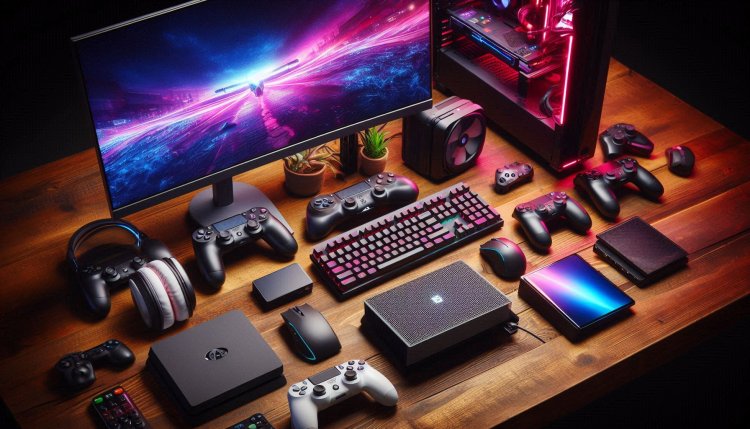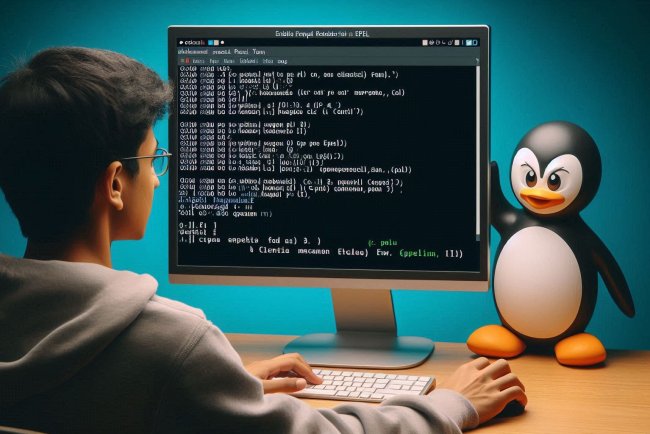Gaming hardware: Consoles, PCs, and peripherals
Elevate your gaming experience with the latest consoles, powerful PCs, and high-performance peripherals. Find the perfect hardware to dominate the virtual world.

Gaming Hardware: Consoles, PCs, and Peripherals
Gaming hardware is an essential component for any gaming setup, whether you prefer consoles or PCs. In this article, we will explore the key features and benefits of gaming consoles, gaming PCs, and peripherals that enhance the gaming experience.
Gaming Consoles
Gaming consoles are dedicated gaming devices that offer a streamlined gaming experience. They are typically designed for plug-and-play convenience and are popular among casual gamers and families. Some of the most popular gaming consoles on the market include:
- PlayStation 5 (PS5): Sony's latest flagship console, featuring powerful hardware and a vast library of exclusive games.
- Xbox Series X: Microsoft's high-end console with impressive graphics capabilities and a strong focus on backward compatibility.
- Nintendo Switch: A unique hybrid console that can be played both on the go and at home, with a wide range of family-friendly games.
Each gaming console has its own strengths and weaknesses, so it's important to choose one that aligns with your gaming preferences and budget.
Gaming PCs
Gaming PCs offer unparalleled performance and customization options for gamers who want the best graphics and frame rates. Building a gaming PC allows you to choose each component, from the processor to the graphics card, to create a system that meets your specific needs. Some key components of a gaming PC include:
- Graphics Card: Determines the visual quality and performance of games, with options from manufacturers like NVIDIA and AMD.
- Processor (CPU): Handles the overall processing power of the system, with popular choices including Intel and AMD CPUs.
- RAM: Provides temporary storage for game data and affects multitasking performance, with higher capacities leading to smoother gameplay.
- Storage: SSDs offer faster load times and boot speeds compared to traditional HDDs, improving overall system responsiveness.
Gaming PCs can be more expensive than gaming consoles, but they offer greater flexibility and performance for serious gamers and content creators.
Peripherals
Peripherals are additional devices that enhance the gaming experience on consoles and PCs. These include accessories such as controllers, keyboards, mice, headsets, and monitors. Here are some popular gaming peripherals to consider:
- Gaming Mouse: Designed for precision and comfort during long gaming sessions, with customizable buttons and DPI settings for optimal performance.
- Gaming Keyboard: Features mechanical switches for tactile feedback and faster response times, with customizable backlighting and macro keys for personalized setups.
- Gaming Headset: Provides immersive audio and clear communication with teammates, featuring surround sound and noise-canceling microphones.
- Gaming Monitor: Offers high refresh rates and low response times for smooth gameplay, with options for resolutions up to 4K and HDR support.
Choosing the right peripherals can greatly enhance your gaming experience, whether you prefer console gaming from the comfort of your living room or PC gaming at a high refresh rate for competitive play.
Conclusion
Whether you choose a gaming console for its simplicity and exclusive titles or a gaming PC for its performance and customization options, gaming hardware plays a crucial role in shaping your gaming experience. By selecting the right combination of consoles, PCs, and peripherals, you can create a setup that caters to your gaming preferences and goals.
Remember to consider factors such as budget, gaming preferences, and future upgradeability when investing in gaming hardware. With the right setup, you can enjoy immersive gaming experiences and stay ahead of the competition in the ever-evolving world of gaming.
What's Your Reaction?

















